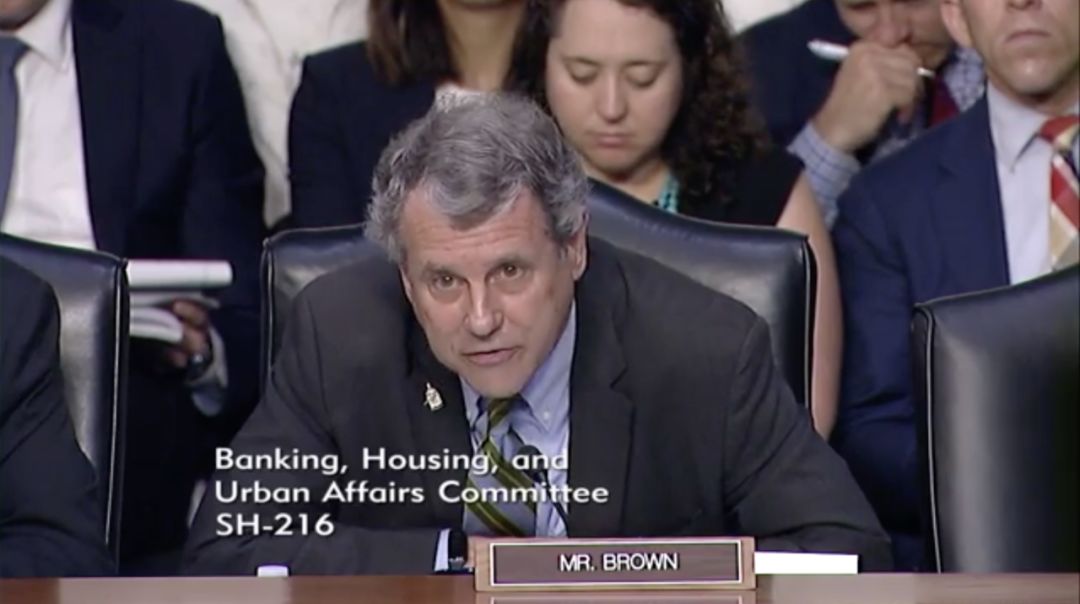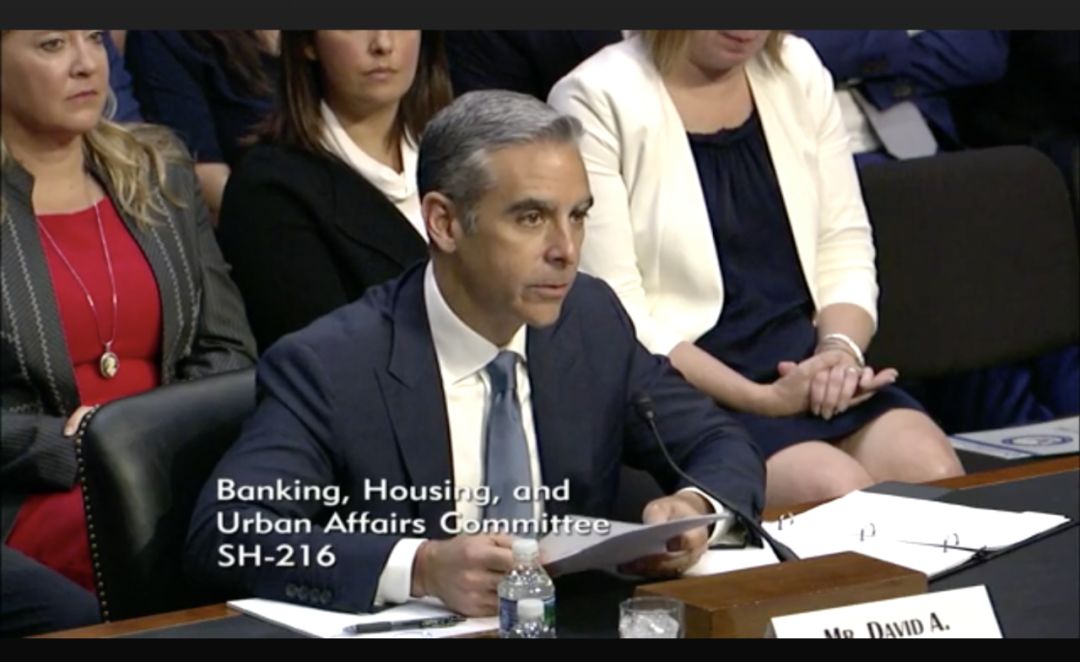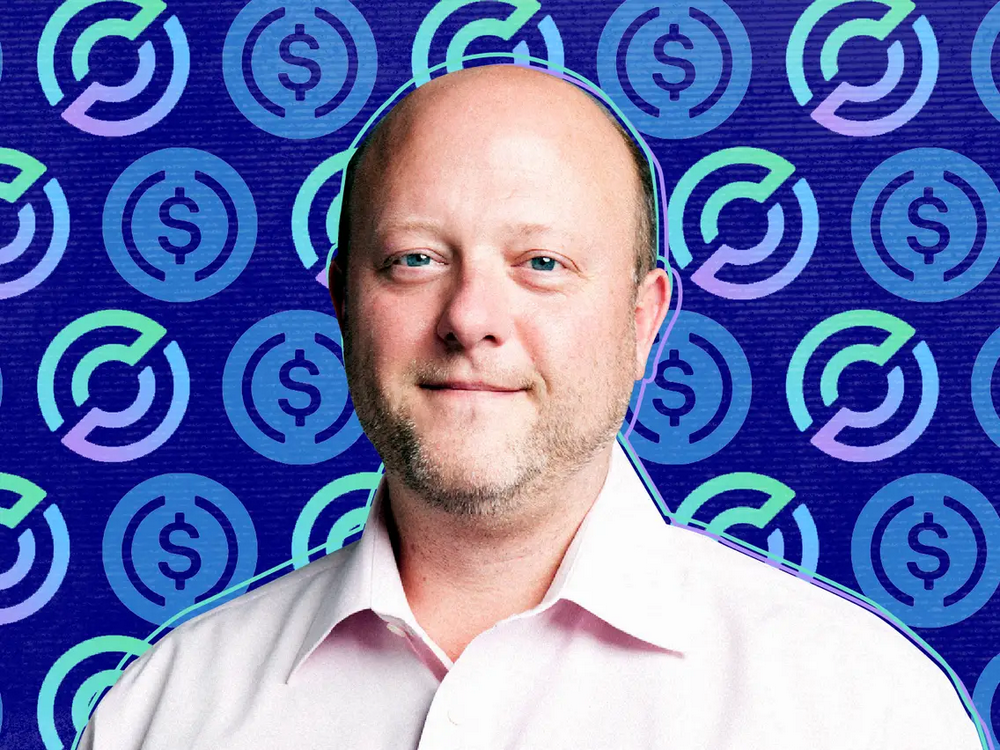Facebook's first robbery of money: fetal death
Members of Congress may not understand the blockchain, but they don't believe in technology, they don't believe in Facebook.
Facebook was once again encircled by the US Congress.
Bitcoin has risen 10% since the release of the Libra white paper; it has now plummeted 14%, fell below $10,000, and led the dollar to dip.
- Will BTC and BCH be halved at the same time? The former's computing power grows to narrow the latter's lead
- Babbitt column | Inclusive finance and blockchain entrepreneurship opportunities in underdeveloped countries
- Bitcoin callback to $6,000? Analysts say "very likely"
On July 16, in Washington, USA, dozens of members of Congress were focused on David Marcus, the protagonist of the hearing.
A month ago, Facebook released the stable currency Libra white paper. The risks that may arise have attracted the attention of the US regulatory authorities. The US Senate and House of Representatives plans to hold hearings on Libra's information disclosure and financial risks on July 16 and 17, respectively. Libra project leader David Marcus is the subject of this hearing.

(David Marcus at the hearing, from TechCrunch)
This scene seems to have met.
In April 2018, 33-year-old Facebook founder Zuckerberg first entered the congressional meeting room, where he conducted a five-hour hearing on Facebook's "privacy door issue."
The following month, Facebook appointed Marcus, who is also in the Messenger business, as the head of the blockchain project. A year later the Libra white paper was made public. It is speculated that having sufficient payment experience is the main reason why Marcus was assigned a heavy responsibility. Before joining Facebook, Marcus founded mobile payment company and became the president of PayPal after being acquired by PayPal.
At that time, Marcus took on the responsibility of Facebook to reverse the negative image and switch to inclusive finance. In just one year, the news protagonist of the Facebook hearing was replaced by him.
The hearing was “very fierce” to describe the US Senate Banking Committee members bluntly saying “Facebook is dangerous” and “no one wants to trust you again”. Many lawmakers took turns to marry Marcus. In the answer, the latter was repeatedly angered and interrupted by lawmakers:
“Facebook is dangerous… they don’t respect the power of technology.”
“Facebook has lived up to and abused people’s trust in them again and again.”
"I don't believe in Facebook, data leaks, unauthorized collection of user data… Although I have received documentation about Libra's privacy commitments, how do we believe that you can do it?"
Obviously, the lawmakers and the American people behind them have lost confidence in the Facebook company. The trust crisis that Facebook was involved in a year ago was doomed to the first pass before Libra was launched – regulation – not too bad.
If you don't get through this, Libra may be dead.
 Libra's regulatory storm
Libra's regulatory storm
Sherrod Brown, vice chairman of the Senate Banking Committee, squinted, apparently the strongest questioner in the hearing. He first throws out the very dangerous conclusions of Facebook, and the style of unsatisfactory interruption or repeated questioning is impressive.
"Trust·Trust" is the word he mentioned the most. He repeatedly questioned that Facebook has DNA that infringes on user privacy and disregards journalism professionalism, and even uses "what the hell" when the hearing is nearing the end. Ask Marcus how to make everyone believe in you again?

The hearing of the House of Representatives has not yet begun, but from the performance of the Senate, the House of Representatives may be even more polite. In the previous media forecast, the situation in the Senate was acceptable, and the House of Representatives was more dangerous.
On June 17, 2019, Facebook published the Libra white paper. This white paper describes Facebook's payment ambitions: “Libra's mission is to create a simple, borderless currency and financial infrastructure that serves billions of people. Libra's goal is to be a stable digital cryptocurrency that will All use real asset reserves as a guarantee."
In most countries, cross-border reprinting and even domestic bank transfers, the handling fee is at least a few points, not as convenient as in China. Libra hopes to issue a digital currency anchored in multiple currencies that can be easily transferred between people in various countries.
This unrecognized digital currency is like a stone that has been thrown to the calm lake. It not only sets off the ravages of the whole world, but also keeps itself involved in the controversy of the storm.
Blockchain carnival, Internet circle earthquake, global regulatory cofferdam.
On June 18, the same day that Facebook published the white paper, Congressman and Chairman of the House Financial Services Committee, Maxin Waters, asked Facebook to suspend Libra's development, and in early July sent an open letter to Facebook with four other members of Congress. Showcasing Facebook's "four sins":
1. Facebook has an influence on one quarter of the world's population. If a crisis occurs, it will have a huge impact on the stability of the US and even the global financial system.
2. There is currently no clear regulation and protection. Investors and consumers may be exposed to various threats, including privacy, transactions and cyber security. A large amount of Facebook will also become the unified goal of hackers.
3, taking into account Facebook's past misdeeds, I do not know whether it can protect user information security.
4. It may become a regulated money laundering tool.
The open letter was not the first bomb received by Facebook. Before the hearing, the Senate Bank, Housing and Urban Affairs Committee sent a letter to Facebook asking about seven major questions about the Libra project.
Even after the advent of Libra, the Fed, which once said it was not worried about Libra's ability to influence its monetary policy, changed its tone in July. In his latest speech, Federal Reserve Chairman Jerome Powell expressed doubts about the feasibility of launching Libra on Facebook's timetable. Libra has caused a lot of serious concerns, including privacy, money laundering, consumer protection and financial stability.
US President Trump has culminated in the negative attitude of the US regulatory authorities to Libra. In Twitter, he directly denied the status and reliability of Facebook's cryptocurrency Libra.
In fact, in addition to the United States, global regulators have expressed a lot of negative comments on Libra. Since July, European regulators such as France and Germany, the Bank of England, the Japanese Ministry of Finance, the South Korean financial regulator, the Indian Ministry of Economic Affairs, and the Bank of Thailand have all taken a cautious view of Libra.
Gentle people such as the Japanese regulatory authorities, including the Ministry of Finance of Japan, the Japan Financial Services Agency, the Bank of Japan, and other liaison meetings, discussed Libra's impact on the world economy and money laundering measures.
The radicals are like the Financial Conduct Authority (FCA), and Chief Executive Andrew Bailey warns that Libra will not be easily approved and must be carefully monitored; or, such as the former central bank's monetary policy director and the South Korean financial regulator, publicly stated The Libra cryptocurrency project will pose a huge threat to the traditional financial system of the world.
 Libra team with a very low profile
Libra team with a very low profile
The information of the hearing was as little as expected.
“Country regulation is the business boundary of Libra.”
“We will not start Libra until we have completely resolved the regulatory issues.”
“Facebook will not compete with any sovereign currency.”
……

Prior to the hearing, the Libra team had demonstrated a compromise on national regulation. The tone of Marcus's answer basically continued the hearings of the Senate official's online exposure before the hearing, and the personal letter of the "six questions and answers responding to all questions of Congress" published 6 days ago.
Summarizing US regulatory commentary can be broadly categorized as: whether Facebook guarantees user privacy, whether Libra threatens the original financial system, whether the Libra system is decentralized, and whether Libra will become a channel for financial crime and money laundering.
Facebook's attitude has also gradually become clear in many responses.
In terms of privacy protection and financial crime shortcuts, Marcus once replied in the Letter to the US Senate that the Libra Association itself will not be involved in processing user transactions and will not store any personal data of Libra users; consumers and businesses also You can run your own public account addresses on the Libra blockchain, but these addresses can be independent of their true identity.
Except for some special circumstances, Digital Wallet CaLibra does not share account information or financial data with Facebook or any third party without the customer's consent. These special circumstances include legally collaborating with law enforcement agencies or regulatory agencies on anti-money laundering or counter-terrorism financing. And sharing data for purposes such as sanctions, etc., but CaLibra customer account information and financial data will not be used to improve Facebook or its social media and instant messaging due to targeted ads in the product.
In addition, although Libra is regulated by the Swiss government, the Libra Association and Facebook's CaLibra wallet are still subject to US tax, anti-money laundering and anti-fraud regulations. Marcus reiterated at the hearing that Switzerland was not chosen to evade US regulation.
In other words, Facebook will try to cooperate with globally regulated anti-money laundering operations.
On the threat theory, Marcus made it clear in the hearing that Libra's digital cryptocurrency would not be introduced until Facebook completely resolved its regulatory concerns and received appropriate approval.
Mracus also stressed that the currency in Libra Reserve will be subject to the monetary policy of their respective governments, and the Libra Association does not intend to compete with any sovereign currency or enter monetary policy. Facebook does not control the Libra network, nor does it control Libra cryptocurrencies and all reserves that support Libra.
Regarding the question of centralization, Marcus also stated in the hearing that the Libra Association will have about 100 such members. Facebook is just one of more than 100 members of the Libra Association and does not have any special rights or privileges. In other words, he only has one vote and cannot control this completely independent organization. You don't have to trust Facebook.
Not only that, but at the hearing, Macus also expressed willingness to put personal assets and salaries on Libra to prove their trust in the system.
 Losing trust in Facebook, the road is destined tough
Losing trust in Facebook, the road is destined tough
Despite the extremely low profile of Facebook, it seems that it cannot alleviate the doubts of US regulation.
On the eve of the hearing, according to blockchain media The Block, a draft discussion entitled “Keep Big Tech Out Of Finance” was proposed. The bill aims to prevent the Internet and technology giants from becoming financial institutions. It also attempts to prohibit these companies from “establishing, maintaining or operating digital assets that are intended to be widely used as a medium of exchange, accounting units, and value storage”.
According to the draft, any technology company with a global annual revenue of more than $25 billion and a third-party connectivity platform that provides online public markets, exchanges or platforms will fall under the jurisdiction of the Act. Violators will be fined $1 million a day.
Obviously, this is a draft for Facebook, and if the draft is passed, the Libra project will be difficult to sustain.
If you read through Libra's white paper, it's not hard to find that Facebook's response, whether it's privacy protection for data or denial of Facebook centralization, is similar to the emphasis in the white paper.
However, in the subsequent doubts and this hearing, the regulatory authorities still focused on the above issues.
At the hearing, Marcus also gave the blockchain technology to the MP Libra. Although members of Congress do not understand the blockchain, they do not believe in technology, but do not believe in Facebook.
In fact, Libra is not fundamentally different from other blockchain projects in terms of technical mechanism implementation. In the United States, it is not illegal for commercial entities to issue stable coins that anchor legal currency. Previously, companies such as Paxos and Gemini have issued stable coins approved by the New York Financial Bureau.
Obviously, Facebook is too big.
As a company with 2.7 billion users, its influence is difficult to measure. The members of Facebook and the Libra Association that have been publicly available are unmatched in size, compared to the size of the startup's tens of billions of dollars based on encrypted digital assets, including Visa, Mastercard, PayPal, Swipe, Uber and Lyft. The global payment companies within the world are undoubtedly very powerful in driving Libra, and have enough deterrent power to subvert the financial system.
With the growth of technology giants in the United States, repeated elections and data leaks have made the public aware of the "danger" of technology companies.
“Facebook enters payments to make a company that is already too powerful stronger.” One member of Parliament believes that Libra is to collect important information such as user funds and water. Facebook, which already has a huge amount of user information, if there is financial data, what is Facebook not aware of?
The deeper reason is that Facebook has lost its trust.
Facebook has consumed too much trust in a series of privacy scandals. Whether it's an open letter from the US Congress to Libra or this hearing, Facebook's black history is still a topic that cannot be separated.
Including the notorious Cambridge analysis scandal, in this scandal, political consulting firms acquired 50 million Facebook user data, which affected the election. As a result of participating in the Cambridge analysis, Facebook is ready to pay a $5 billion fine to the Federal Trade Commission.
In addition, the company was also sued by civil rights organizations and the US Department of Housing and Urban Development for violating the Fair Housing Act on its advertising platform and through its advertising algorithm.
Assuming Facebook has no scandal blessings, how far this social giant can make on this cross-border currency may not be able to assess it, but it is certain that it must not be so difficult now.
It is foreseeable that Libra, which was originally designed to reverse the Facebook trust crisis and create a new business model for Facebook, is being countered by the Facebook trust crisis.
Libra still has the infinite potential to solve cross-border payment challenges. With the attention of the regulatory authorities, Libra's smooth launch may still be unknown.
The future may be a far cry from the previous imagination.
As Marcus said, the digital currency is in a trend, and the United States has fallen behind in real-time payments. If the United States does not lead the digital innovation currency and payment field, other countries will.
=====================
There are two Libra hearings, and they are interested in relevant content and can continue to pay attention.
The first hearing was held at 10 am Washington time on July 16 and organized by the Senate Bank, Housing and City Council, entitled “Examining Facebook's Proposed Digital Currency and Data Privacy Considerations.” (Reviewing Facebook Digital Currency and Data Privacy Matters) ).
The second hearing will be held at 10 am Washington time on July 17, organized by the House Financial Services Committee and named "Examining Facebook's Proposed Cryptocurrency and Its Impact on Consumers, Investors, and the American Financial System." Cryptographic currency and its impact on consumers, investors and US financial institutions).
The official website of the first hearing video broadcast:
Https://www.banking.senate.gov/hearings/examining-facebooks-proposed-digital-currency-and->
Text | Aloe
Produced | Odaily Planet Daily (ID: o-daily)
Original article; unauthorized reprinting is strictly prohibited, and violation of the law will be investigated.
We will continue to update Blocking; if you have any questions or suggestions, please contact us!
Was this article helpful?
93 out of 132 found this helpful
Related articles
- Don't have a face, is there a letter from Facebook's cryptocurrency?
- QKL123 market analysis | The key moment is coming, bitcoin $ 9,000 bottoming? (0717)
- What is the anxiety of the US Congress in a hearing that triggered a market earthquake? Will Libra be banned in the end?
- Will Grin and Beam be forked, and will the privacy currency be fired again?
- Getting started with blockchain | What is ASIC mining?
- After the Libra hearing, the BTC fell sharply. Is this bull market ending?
- Dissatisfied Libra hearing, lying on the coin circle





